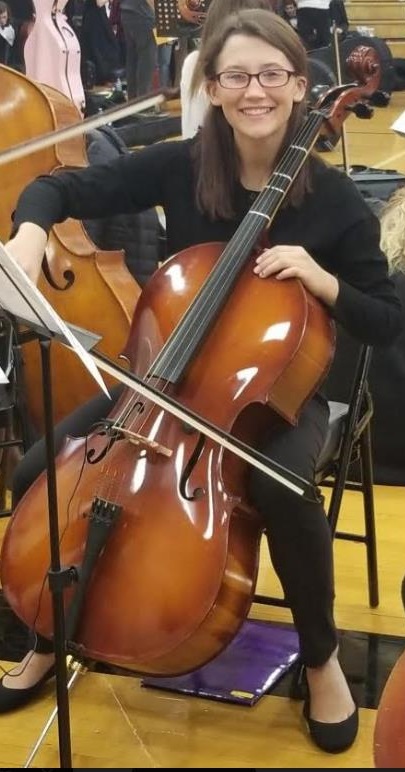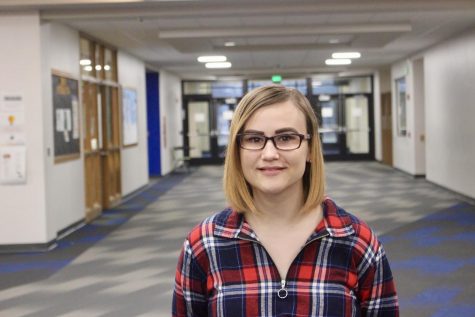Musician of the week: Kimberly Jarrell
Kimberly Jarrell with her cello while getting set up for an orchestra concert.
December 17, 2019
Senior Kimberly Jarrell began playing the cello when she was in the fifth grade and now she plans to minor in instrumental performance at the college level. Keep reading to learn more about her passion.
GENESIS: What instrument(s) do you play?
KIMBERLY JARRELL: I play a little bit of piano, but mainly the cello.
G: When did you decide that you wanted to play an instrument? Why?
K: I decided that I wanted to play an instrument when I was in fifth grade. Mainly since that early stage, I had this emotional connection to music.
G: Did you always want to play the instrument(s) you currently do?
K: I’ve always wanted to play the cello. I was drawn to the rich tone that the cello possesses.
G: Do you have any future plans, regarding your play of instrument(s)? If so, why?
K: Yes, I plan to minor in instrumental performance, wherever I go. I’ve worked so hard to get to where I am now, and I am so passionate about it; I want to keep going. I can’t imagine letting it go.
G: How did you know that you wanted to be in orchestra, rather than band?
K: I’m a quiet person, and orchestra suited me better. I had a deeper connection with orchestra.
G: What does a normal day of orchestra look like?
K: A normal day of orchestra looks like this: we go into the orchestra room, set up our chairs and stands, take a few minutes to individually tune our instruments, get out the pieces of music, and then we tune our instruments as a group. The rest of the class, we work on the different pieces and different groups within the orchestra room, as well as any sectionals we might need.
G: What requirements are there in orchestra? Is it easy? Is it worth it? Why or why not?
K: Requirements include, but are not limited to having a good attitude, being able to work as a team, in order to produce a cohesive sound. Confidence is key. No matter if you are wrong, you must be confident in it. Everything is going to sound wrong if you aren’t confident. Is it easy? Not all the time. Especially around holiday times. Not all of the pieces are easy, either. You definitely have to put in some outside practice because when you are doing group work, you want to be able to work on group issues, not just individual issues. Is it worth is? For me, I’d definitely say it is. With all the progress I’ve made, I’m quite proud of myself.
G: What have you overcome, throughout the years of your experience?
K: Because I am such a quiet person, that reflects in my playing. While I am still a softer player, I’ve been able to project my increased confidence, into my playing.
G: Is there anything you’d like to improve the most?
K: I’d like to improve my sight reading.
G: What is your proudest moment, regarding your play of instruments?
K: Getting gold with distinction two years in a row at state Solo and Ensemble, for our large group ensemble.
G: If you could go back in time to when you were just starting out with music, what advice would you give to yourself? Why?
K: It’s okay to make mistakes; it’s part of the process. Just have more confidence because playing with confidence is a huge part of orchestra.
G: If you were to give advice to those who are considering playing an instrument, and in your case, considering joining orchestra, what advice would you give? Why?
K: My advice? Do it. You’d meet all kinds of people along the way, and you’d go to many events and gain many experiences from it. You wouldn’t want to miss out on them.
G: If you could say anything to your directors, what would you say?
K: Thank you. Thank you for all the time that you’ve put in with us, to help us become the musicians that you know that we can be.








